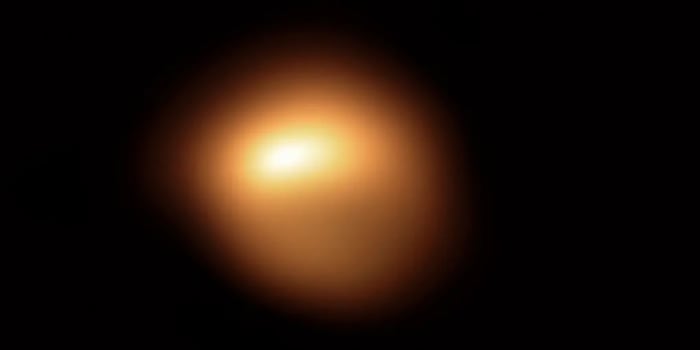

Could the giant star Betelgeuse really have already exploded?
It has been rumoured for some time that Betelgeuse will soon go supernova. Now there are new indications that it may have already collapsed.
More and more speculation has recently centred on whether the red giant star Betelgeuse in the constellation Orion could be about to explode in a supernova. One indication of this was that it flickered strangely - sometimes appearing brighter and sometimes dimmer than usual. Around three years ago, the all-clear was given.
Two to three massive stars per galaxy and century should explode in a supernova. In such a gravitational collapse, the inner core of the giant collapses because the fusion of the chemical elements there comes to a standstill. In the past 400 years, nothing has happened in this respect in our home galaxy: a supernova is therefore long overdue in purely mathematical terms.
When this happens, everything happens very quickly: the collapse takes place on a timescale of milliseconds. After the collapse, the rebound from the dense stellar core, together with myriads of neutrinos that are created, drives the bright supernova. It is even possible that this has already happened, as we will only be able to see its stellar explosion on Earth around 650 years after the collapse due to Betelgeuse's distance.
Gravitational wave researchers are also very interested in the explosion because the supernova should shake space-time so violently that Einstein space-time waves would be detected for the first time by a core-collapse supernova. It remains exciting.
Spectrum of Science
We are a partner of Spektrum der Wissenschaft and want to make well-founded information more accessible to you. Follow Spektrum der Wissenschaft if you like the articles.
[[small:]]
Cover image: © ESO/M. Montargès et al / The view of Betelgeuse from SPHERE in December 2019 / CC BY 4.0 CC BY (detail) Betelgeuse is close enough to us that it appears extended rather than point-like. The red supergiant can already be easily recognised in the sky. When it shines as a supernova, it will be even more spectacular.
Experts from science and research report on the latest findings in their fields – competent, authentic and comprehensible.
From the latest iPhone to the return of 80s fashion. The editorial team will help you make sense of it all.
Show all